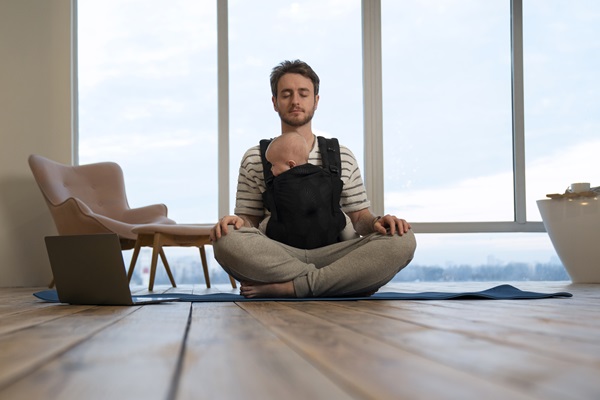In a world that often glorifies busyness, self-care is not a luxury but a necessity. This article delves into the profound art of self-care, guiding you through the steps to revitalize your daily routine for self-care and find the perfect balance that rejuvenates your mind, body, and soul.

The Importance of Self-Care
The frantic pace of modern life can take a toll on our physical and mental well-being. Self-care provides the essential respite needed to maintain balance, serving as a life preserver in the tumultuous sea of our daily lives.
What Is Self-Care?
Self-care is often misunderstood as mere indulgence. In reality, it’s a holistic approach to nurturing yourself on multiple fronts. It’s a blend of conscious choices and actions that promote well-being in all aspects of life, be it physical, emotional, or mental.
Assessing Your Current Daily Routine for Self-care
Before embarking on your self-care journey, it’s essential to evaluate your current routine and identify areas that need improvement.
Self-Care Audit
It all starts with a deep dive into the elements of your life that are causing stress and unease. Recognize the issues that keep you awake at night, whether they’re related to work, personal relationships, or other facets of your existence. This self-awareness is the cornerstone of effective self-care.
Identifying Stressors
Stressors are those sneaky culprits that lurk in the shadows of your mind, causing unease and restlessness. They can range from looming work deadlines to unresolved personal conflicts. Identifying them is the first step towards taking control of your life.
Recognizing Neglected Needs
We often put the needs of others ahead of our own, whether it’s family, work, or societal expectations. It’s time to turn the spotlight inward. What aspects of your life have you been neglecting? Is it your physical health, mental well-being, or perhaps the passions and hobbies that used to light up your soul?
Daily Routine Analysis
To integrate self-care into your daily life, it’s essential to analyze your current routine.
Time Allocation
Consider how you allocate your precious hours throughout the day. Are you overloading yourself with work, chores, and commitments, leaving no room for self-care? Analyze how you can make time for the things that truly matter.
Productivity vs. Relaxation Balance
Finding the right equilibrium between productivity and relaxation is vital. A life entirely devoted to work may lead to burnout, while too much leisure might hinder your progress. Striking a harmonious balance will help you lead a fulfilling life.
Designing a Self-Care Strategy
Once you’ve evaluated your routine, it’s time to design a strategy that ensures self-care becomes a natural part of your life.
Goal Setting
The foundation of an effective self-care strategy lies in goal setting.
Long-Term vs. Short-Term Goals
Distinguish between long-term self-care objectives and shorter, immediate goals for a well-rounded approach. Long-term goals may involve achieving better physical health, while short-term goals could be daily meditation.
SMART Goals
Make sure your self-care goals are Specific, Measurable, Achievable, Relevant, and Time-bound. This ensures that your objectives are concrete and attainable.
Prioritizing Self-Care
To make self-care a non-negotiable part of your daily routine, you must prioritize it.
The Urgency of Me-Time
Consider self-care as essential as breathing. It’s your personal space, your sanctuary where you replenish your energies. By making it a priority, you prevent stress and exhaustion from taking over.
Dealing with Guilt
Guilt is often the baggage we carry when we take time for ourselves. Learning to let go of this guilt is essential for effective self-care. Remind yourself that taking care of your well-being enables you to better care for others.
Mindful Mornings
Starting your day with intention and mindfulness sets a positive tone for the rest of your hours.
Waking Rituals
Begin your day with gratitude journaling. Write down the things you’re grateful for. This simple practice helps you focus on the positive aspects of your life and sets a harmonious tone for the day. Combine this with deep breathing exercises to calm your mind and center your thoughts.
Healthy Breakfast Choices
A nourishing breakfast is the fuel your body needs to kickstart the day. Opt for nutrient-packed foods like whole grains, fruits, and lean proteins. Don’t forget to hydrate; a glass of water with lemon is a refreshing way to start your day, providing essential hydration and vitamins.
Workday Wellness
Self-care should not be limited to mornings; it should extend into your workday.
Break Strategies
Incorporate regular breaks into your workday. The Pomodoro Technique is a proven method that divides your work into focused intervals, followed by short breaks. This helps maintain productivity without overwhelming yourself. During breaks, engage in simple stretching exercises to release tension and rejuvenate your body.
Office Ergonomics
Your workspace significantly influences your well-being during work hours.
Proper Chair and Desk Setup
Invest in an ergonomic chair and desk setup that supports your posture. Proper alignment reduces the risk of physical strain and discomfort during extended periods of work.
Reducing Screen Glare
Screen glare can lead to eye strain and fatigue. Adjust your monitor’s position and invest in anti-glare screens to protect your eyes from the harsh light.
Nourishing Nutrition
Eating healthily is a form of self-care.
Meal Planning
Plan your meals to ensure a balanced diet. Include a variety of vegetables, fruits, lean proteins, and whole grains in your diet. Additionally, consider healthy snacking options like nuts and yogurt to maintain energy levels throughout the day.
Mindful Eating
Savor each bite during your meals. Avoid mindless eating in front of screens or during stressful moments. Engage in the experience of eating, appreciating the flavors and textures of your food. Avoid using food as an emotional crutch, and instead, acknowledge your emotions and address them directly.
Evening Tranquility
To maintain a harmonious routine, your evenings should be a time of relaxation and winding down.
Unplugging from Technology
Digital detox is crucial in the evenings.
Digital Detox
Disconnect from screens at least an hour before bedtime. The blue light emitted by screens can disrupt your sleep patterns. Opt for a soothing bedtime routine, like reading a book or practicing relaxation exercises. If you must use screens, consider using sleep-inducing apps that reduce the intensity of blue light.
Relaxation Techniques
To transition into a peaceful night’s sleep, engage in relaxation techniques.
Meditation
Meditation helps calm the mind and ease the stresses of the day. Spend a few minutes meditating, focusing on your breath, and releasing the tensions of the day.

Bedtime Yoga
Gentle yoga stretches can relax your body and mind, making it easier to fall asleep. Simple poses like a child’s pose and legs up-the-wall can help you unwind and prepare for a restful night.
Exercise and Self-Care
Physical activity is a vital component of self-care.
Finding Your Workout
Your exercise routine should be enjoyable and tailored to your preferences.
Cardio vs. Strength Training
Experiment with different forms of exercise, whether it’s cardio activities like running or cycling, or strength training like weightlifting or bodyweight exercises. The key is to find something you love and look forward to.
Incorporating Fun Activities
Exercise doesn’t have to feel like a chore. Engage in activities you enjoy, such as dancing, hiking, or playing sports. The more fun you have, the more likely you are to make exercise a part of your daily routine.
Scheduling Physical Activity
Consistency in your workout routine is key.
Consistency Matters
Regular exercise is more effective than sporadic, intense workouts. Create a schedule that you can realistically stick to, ensuring that physical activity becomes a consistent part of your routine.
Overcoming Exercise Barriers
Identify and address the obstacles that hinder your exercise routine, whether it’s time constraints, lack of motivation, or physical limitations. Seek solutions that work for you.
Social Connections
Nurturing your social relationships is another aspect of self-care.
Nurture Relationships
Prioritize quality over quantity in your social interactions.
Quality Over Quantity
Focus on building deep, meaningful connections with a select group of friends and family. These relationships provide the support and understanding needed for a healthy social life.
Setting Boundaries
Establish clear boundaries in your social life. Don’t overextend yourself or feel obligated to engage in every social event. Protect your personal time and well-being.
Alone Time
Solitude can be a form of self-care, too.
Benefits of Solitude
Spending time alone allows for self-reflection and personal growth. Embrace solitude as an opportunity to recharge, clear your mind, and gain insights into your inner self.
Self-Reflection
During alone time, engage in self-reflection. Consider your goals, values, and the direction you want your life to take. This practice can provide clarity and a sense of purpose.
Spa Days at Home
Pamper yourself with DIY self-care rituals right at home.
DIY Self-Care Rituals
Transform your bathroom into a sanctuary with bath soaks and facial masks. These simple indulgences can rejuvenate your body and spirit.
Bath Soaks
Draw a warm bath and add Epsom salts or bath bombs with relaxing scents like lavender. Soaking in the warm water not only eases physical tension but also calms your mind.
Facial Masks
Treat your skin to a nourishing facial mask. You can purchase ready-made masks or create your own with natural ingredients like honey, yogurt, and oatmeal. A facial mask can leave your skin refreshed and glowing.
Creating a Relaxing Atmosphere
Set the mood for your spa day with a tranquil environment.
Aromatherapy
Use essential oils or scented candles to create a soothing atmosphere. Scents like lavender, chamomile, and eucalyptus can induce a sense of calm and relaxation.
Soft Music
Play soft, instrumental music in the background to further enhance the ambiance. Gentle melodies can whisk you away to a peaceful state of mind.
Embracing Hobbies
Self-care includes pursuing your passions and interests.
Pursuing Passions
What are you passionate about? Whether it’s painting, gardening, playing a musical instrument, or any other hobby, dedicate time to it. Hobbies provide a creative outlet and a sense of fulfillment.
Finding New Interests
Don’t be afraid to explore new interests. Trying something different can be a refreshing experience and may lead to a newfound passion.
Balancing Work and Leisure
Maintaining a balance between work and leisure is a significant aspect of self-care.
Time Management
Effective time management is crucial to ensure that you have time for both work and leisure. Plan your work hours efficiently, allowing designated time for your hobbies and relaxation.
Mindful Transitions
When transitioning from work to leisure, take a few moments to clear your mind. This can be as simple as deep breathing or a short walk. By doing so, you’ll be more present in your leisure activities and truly enjoy them.
The Power of Saying “No”
Learning to set boundaries and say “no” is a vital component of self-care.
Setting Boundaries
Establishing boundaries in your personal and professional life is essential. It allows you to protect your time and well-being.
Protecting Your Time
Saying “no” when necessary safeguards your time from being consumed by tasks and commitments that don’t align with your goals and values.
Communicating Effectively
When you need to decline an invitation or a task, do so with clear and respectful communication. Honesty is key to maintaining healthy relationships.

Guilt-Free Refusals
Overcoming guilt associated with turning down requests or obligations is an essential step toward effective self-care.
The Importance of Prioritization
Understanding that self-care is not selfish is a crucial shift in mindset. Prioritizing your well-being over obligations is not only beneficial for you but also for those around you.
Self-Care over Obligations
Remember that taking care of yourself is not a detriment to others. It empowers you to be more present and helpful in your interactions.
Self-Care and Mental Health
Self-care plays a significant role in maintaining good mental health.
Recognizing Stress Symptoms
Stress often manifests in physical and emotional symptoms. Recognizing these signs is crucial.
Physical vs. Emotional Signs
Stress symptoms can range from physical manifestations like headaches and fatigue to emotional indicators like anxiety and irritability. Identifying these signs allows you to address stress effectively.
Seeking Professional Help
Sometimes, self-care alone may not be sufficient to combat stress and mental health issues. Don’t hesitate to seek professional assistance when needed, whether it’s therapy, counseling, or medical support.
Mindfulness and Stress Reduction
Mindfulness practices are invaluable tools for reducing stress and promoting mental well-being.
Meditation Practices
Regular meditation practices can calm your mind and help you manage stress. Whether it’s mindfulness meditation, loving-kindness meditation, or transcendental meditation, find a method that resonates with you.
Cognitive Behavioral Techniques
Cognitive-behavioral techniques help you identify and change negative thought patterns that contribute to stress and anxiety. With the guidance of a mental health professional, these techniques can be highly effective.
Financial Self-Care
Self-care extends to your financial well-being.
Budgeting
Keeping track of your finances through budgeting is a form of self-care. It provides you with financial security and peace of mind.
Tracking Expenses
Regularly monitor your expenses to ensure that you’re living within your means and saving for your future.
Savings Goals
Set clear savings goals, whether it’s for a rainy day fund, a vacation, or retirement. Achieving these goals is an act of self-care, providing you with financial security and reducing money-related stress.
Reducing Money-Related Stress
Financial self-care also includes managing and reducing money-related stressors.
Debt Management
If you have debts, create a plan to manage and reduce them. Reducing financial burdens can significantly alleviate stress and improve your overall well-being.
Financial Education
Invest in financial education to make informed decisions about your money. Understanding investments, savings accounts, and financial planning is a proactive form of self-care.
Reviewing and Adapting Your Self-Care Plan
Self-care is not static; it requires continuous evaluation and adaptation. Regularly reviewing and adapting your daily routine for self-care ensures that it remains effective and aligned with your evolving needs.
Regular Assessment
Regularly assess whether you’re meeting your self-care goals. This reflection allows you to make adjustments as necessary.
Are You Meeting Your Goals?
Take a moment to reflect on whether you’re achieving the self-care objectives you’ve set for yourself. If not, consider why and what changes are required.
Adjustments as Needed
Life is dynamic, and your daily routine for self-care should be too. Be willing to adapt your strategies and goals to align with your current needs and circumstances.
Staying Consistent
Consistency is the cornerstone of an effective daily routine for self-care. By dedicating time each day to activities that promote health, relaxation, and personal growth, you can reduce stress, improve your mood, and enhance your overall quality of life.
Avoiding Burnout
By making self-care a consistent part of your life, you reduce the risk of burnout and exhaustion. A steady daily routine for self-care keeps you resilient and prepared to face life’s challenges.
Celebrating Self-Care Successes
Don’t forget to celebrate your self-care achievements. Acknowledge the positive changes in your life and the progress you’ve made towards a healthier, more balanced routine.
Conclusion
Establishing a daily routine for self-care is essential for maintaining both physical and mental well-being. By dedicating time each day to activities that promote health, relaxation, and personal growth, you can reduce stress, improve your mood, and enhance your overall quality of life.



